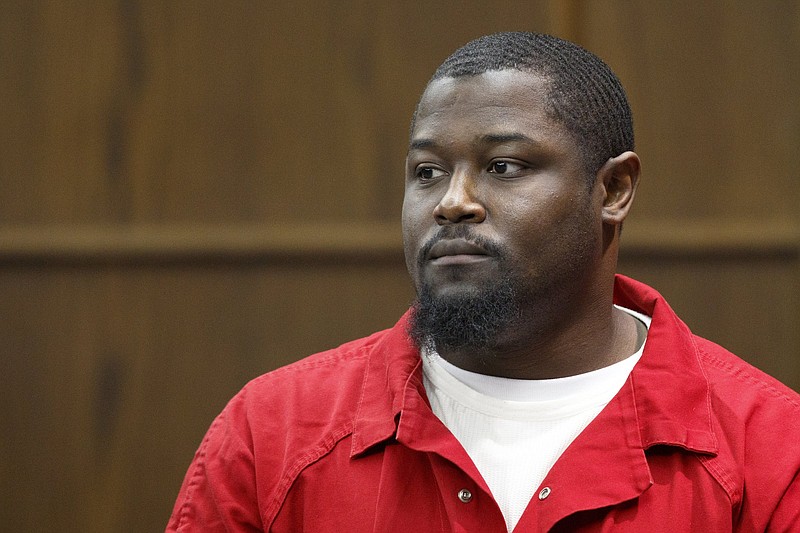The Tennessee Court of Criminal Appeals heard arguments Tuesday in a Chattanooga man's bid for a new trial after the lower court twice denied his petition for a new trial in a 2010 murder case.
Unjolee Moore, now 34, has been serving a life sentence at Trousdale Turner Correctional Center near Nashville since 2013 in connection with the shooting death of 46-year-old Bernard Hughes.
The case has involved allegations of police misconduct, including an allegedly coerced confession and the allegation that a then-Chattanooga police captain, now-retired Assistant Chief Edwin McPherson, told investigators not to collect a cellphone that belonged to his niece.
In a hearing before Moore's trial, McPherson testified that he didn't remember telling the investigator not to take the phone.
At the time, detectives believed McPherson's niece was responsible for setting up the robbery that led to Hughes' death, the Times Free Press reported previously. But investigators never had any proof to charge her, according to the internal affairs report.
At Moore's trial, though, prosecutors said that it was Moore's planning that brought him and three others to Hughes' home for the robbery.
While prosecutors didn't have witnesses or DNA evidence placing Moore at the scene of the crime, they did have the alleged confession in which Moore said he helped plan the robbery of Hughes, not knowing it would turn fatal.
The confession was enough for jurors in 2013 to convict Moore of felony murder, attempted especially aggravated robbery, aggravated robbery, second-degree murder and employing a firearm during a dangerous felony.
The case has been making its way through the appeals process ever since.
Moore's defense argues that the confession was coerced out of him by detectives who "pummel[ed him] to no end," and the details he provided about the crime were based on information he learned from the detectives themselves.
Moore's trial attorney testified during a 2018 hearing that Moore did not tell him about having been beaten by detectives until the trial had already begun and his statements to the detectives were being played to the jury.
Moore's current attorney, Daniel Murphy, is arguing that his client received ineffective counsel and should therefore be granted a new trial.
The trial attorneys, Murphy notes, never called alibi witnesses, did not ask to delay the trial in order to conduct more research and did not know about cellphone records that were in the state's master case file - records that he wrote would show Moore was nearly eight miles away from the crime scene at the time the shooting took place.
He was "spending time with his brother, exchanging pleasantries with a female friend and otherwise doing nothing of consequence," Murphy wrote in a brief filed in the Court of Criminal of Appeals.
The lower court has twice denied Moore's petition for a new trial, though, ruling that Moore did not receive ineffective or harmful counsel. Specifically, Hamilton County Criminal Court Judge Don Poole said Moore's claim that a Chattanooga police investigator beat him into a confession came too late and that cellphone tower records on the night in question could have incriminated Moore because they didn't match one of his alibis.
The inconsistency was noted at a 2019 hearing, where a Chattanooga Police Department forensics technician said that cell tower records showed Moore's phone was "on the move" 23 minutes before the first police call.
Prosecutors pointed to the data showing the phone moved east from an area in Boone Heights toward the area of the crime scene. And then, five minutes after police were dispatched, it was in an area a mile and a half away from scene.
Regardless, even if the phone was on the move, Murphy argued in 2019, it still doesn't align with what he says was a coerced and false confession from Moore that he was at the crime scene the whole time.
"You can't have that if he's all over town," Murphy said.
It is now up to appeals court judges to decide whether to let the case move forward or confirm the lower court's decision to deny the petition for a new trial.
Contact Rosana Hughes at rhughes@timesfreepress.com or follow her on Twitter @HughesRosana.
